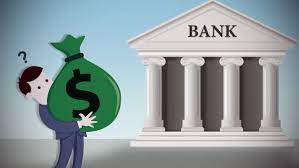Federal Reserve Bank of Dallas President Lorie Logan said more interest-rate increases will likely be needed to spur meaningful disinflation and bring price-growth rates back to the central bank’s target.
“I remain very concerned about whether inflation will return to target in a sustainable and timely way,” Logan said Thursday in remarks prepared for delivery at the Central Bank Research Association’s annual meeting in New York. “I think more-restrictive monetary policy will be needed to achieve the Federal Open Market Committee’s goals of stable prices and maximum employment.”
Policymakers paused their tightening campaign last month following 10 consecutive hikes over 15 months, while at the same time indicating that more increases were likely before the end of the year. Logan, who has said she’s concerned about the persistence of inflation, joined her colleagues in voting for the action, but said Thursday it would have been “entirely appropriate” to raise rates.
“My hope was that the overall package of communications coming out of the June meeting would deliver a strong signal to financial markets and meaningfully tighten financial conditions,” Logan said, speaking publicly for the first time since the June meeting.
She added that it was important for the Fed to follow through on its June signal. Forecasts Fed officials submitted at the last meeting showed they expect two more interest-rate increases this year, according to their median estimate. Markets have penciled in one for July but remain split over whether policymakers will deliver another.
The personal consumption expenditures index, less food and energy, rose at a 4.6% annual pace in May, a report showed last week, virtually unchanged since the beginning of the year.
The minutes of the June meeting, released Wednesday, showed a growing divide among officials, with some saying they would have preferred to raise rates again at that point amid a still-high inflation rate and a tight labor market. Others have said they want to see how their aggressive policy so far is affecting the economy.
“Some people say a lot of further cooling is in store from lagged consequences of the rate increases the FOMC has already made over the past year and a half,” Logan said Thursday. “I’m skeptical about the potential for large additional effects from this channel.”




